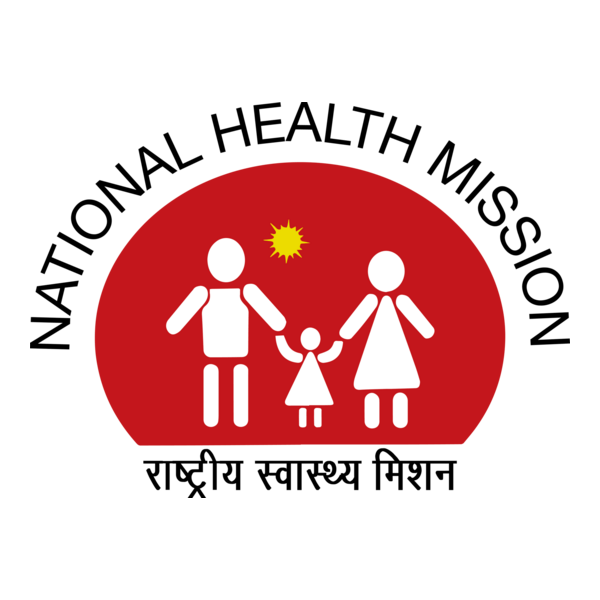ROUTINE IMMUNISATION PROGRAMME
ROUTINE IMMUNISATION PROGRAMME
Introduction:
- A routine immunization Programme is being implemented to reduce morbidity and mortality in children due to diseases preventable by vaccination, using Pentavalent, RVV, IPV, PCV, JE, DPT, Polio, BCG, Hepatitis B, Measles & Rubella, and Td vaccines.
- This programme aims to immunise children and pregnant women against communicable diseases such as Diphtheria, Pertussis, Tetanus, Hepatitis B, Rotavirus, Diarrhea, Pneumococcal disease, Polio, childhood Tuberculosis, Haemophilus influenza type B, measles and Rubella.
- The budget for this program is provided by the Government of India as part of NRHM under the Routine Immunization Head. Vaccines and AD syringes are supplied by the government of India.
- Vaccines are given to the beneficiaries in immunization sessions, which are held at Health Institutes and at outreach sites, free of cost. Cold Chain is maintained during transport of vaccine to maintain potency of vaccine.
- The Japanese Encephalitis (J.E.) vaccine is included in routine immunization in 13 districts like Amravati (including MC), Yavatmal, Nagpur, Bhandara, Gondiya, Washim, Gadchiroli, Latur, Beed, Wardha, Osmanabad, Solapur, and Chandrapur.
Aims & Objectives:
- To reduce Infant and childhood morbidity and mortality in children due to diseases preventable by vaccination
- To immunize children at the proper age
Facilities providing services:-
The programme is being implemented through the network of Primary Health Centers, Sub-centers, Rural Hospitals, Sub-district Hospitals, District Hospitals, women’s Hospitals, General Hospitals, Corporation Hospitals and Accredited Private Hospitals in the State
Manpower:
The Routine Immunization Programme is being implemented by Medical and Paramedical personnel & Cold chain technicians. There is involvement of ASHA in the implementation of the programme. For effective and smooth implementation of the programme, Medical and paramedical personnel are trained regularly.
Pentavalent vaccine
It was included in the Routine Immunization programme on 22nd November 2015 in Maharashtra. Pentavalent vaccine protects against five potential killers – Diptheria, Tetanus, Pertusis, Hib, and Hepatitis B.
Rota Virus Vaccine:
Rotavirus infection is the leading cause of severe diarrhea among young children. Rotavirus infections spreads due to infectious hand, eating unhygienic food and infectious water. Due to the introduction of the Rotavirus vaccine, it is possible to increase immunity in children and decrease death due to diarrhea.
The rotavirus vaccine was introduced in the State of Maharashtra on Dt. 20 July 2019.
This vaccine is given orally in 3 doses (2.0ml) at the age of 6th, 10th and 14th week in regular vaccine schedules.
Td Vaccine:
As per GOI instructions, the Td vaccine is given instead of the TT vaccine to all pregnant women, 10 years and 16 years children.
Pneumococcal Conjugate Vaccine (PCV)
The pneumococcal conjugate vaccine (PCV) is included under the Routine Immunization programme from July 2021. This protects children against pneumococcal diseases.
PCV is given in three doses (2 primary doses and one booster) at 6 week, 14 weeks and 9 months of age.
Measles – Rubella (MR):
Measles is highly contagious and spread through the coughing and sneezing of an infected person. Rubella infection is similar to measles infection but is milder in symptoms.
The measles and rubella (MR) Vaccine is available for both the Measles and Rubella diseases. In the campaign, the Measles & Rubella (MR) vaccine is given to children under 9 months to 15 years of age. The Measles & Rubella (MR) vaccination campaign was implemented by the Department of Health and supported by the Department of Education and the Women and Children’s Welfare Department.MR vaccination campaign was conducted from 27th November 2018 all over the state.
This campaign was supported by the participation of the Urban Development Department, Tribal Development Department, Medical Education Department and Minority departments, etc.
For this campaign, support from the World Health Organization (WHO), UNICEF, Indian Academy of Pediatrics (IAP), Indian Medical Association (IMA), Rotary Club, Lions Club, etc. For publicity material fund support was received from ICICI Bank.
Polio Eradication Programme:
- Pulse Polio Immunization campaign was started in 1995 with the aim to eradicate Poliomyelitis.
- Children below 5 years of age, irrespective of earlier receipt of number of doses of polio vaccine, are immunized at National Immunization Day all over India and Sub National Immunization Day in selected areas.
- The members of the Global Commission for the Certification of Poliomyelitis Eradication have certified & declared on 20th September 2015 that indigenous wild poliovirus type 2 has been eradicated worldwide.
- On 27th March 2014, India was declared polio free by WHO.
- The Polio Eradication & Endgame strategy plan declared by WHO (2013-18) has been adopted in India & Maharashtra, which includes the following –
- The last NID round by using tOPV was conducted on 17th January & 21st February 2016 in Maharashtra.
- Injection IPV was introduced from 25th April 2016 in the Routine Immunization Programme as per GOI instructions. This vaccination is given along with the 1st & 3rd dose of OPV for the beneficiaries under 1 year of age
The switch from tOPV use to bOPV use was done on 25th April 2016 in Maharashtra
Beneficiary:
Citizen
Benefits:
As above
How To Apply
Online



